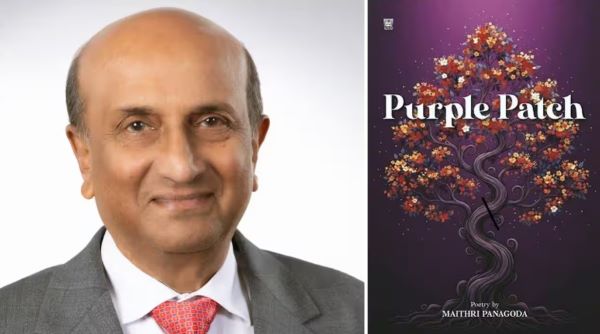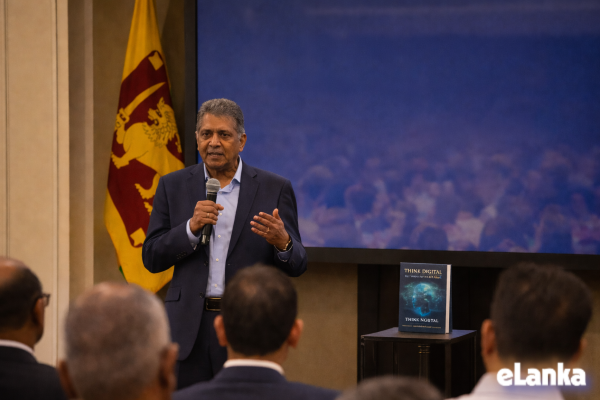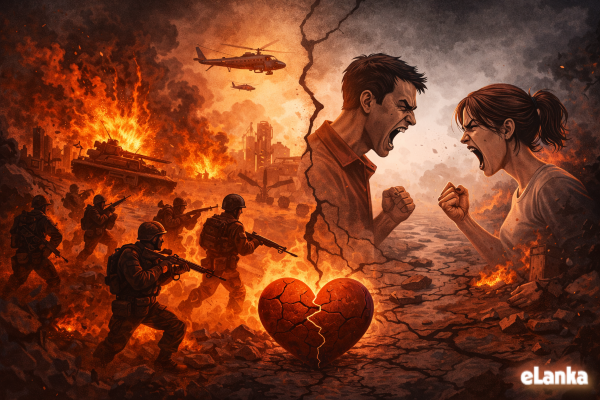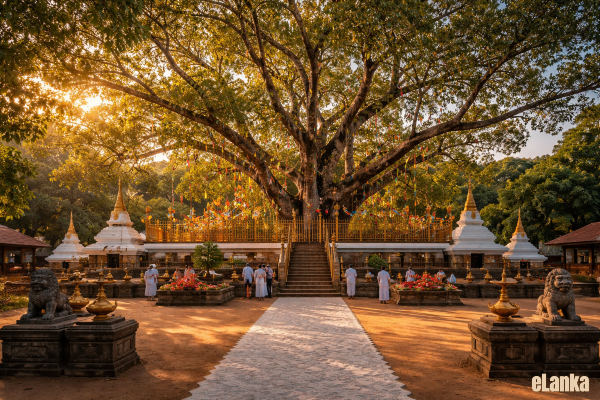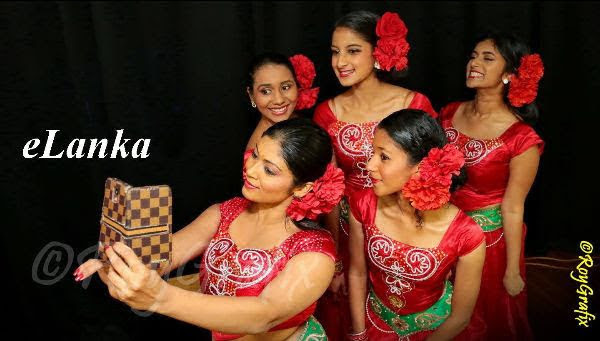From Jaffna library to University – politics of identity-By Harim Peiris
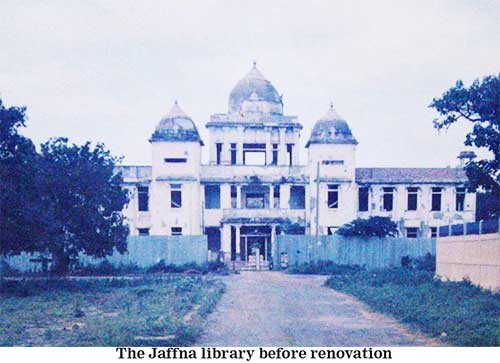
Source:Island
A centre of Tamil learning in Jaffna was attacked and destroyed. No, not last week, but 40 years ago, in 1981, the iconic Jaffna Library, a seat of Tamil language, literature and learning was burnt to cinders by a mob of what then cabinet ministers Cyril Mathew et al were watching, perhaps not entirely as innocent bystanders, from the veranda of the old Jaffna Rest House termed as “an unfortunate rampage by a few drunk and off duty police officers”. Coming a full circle, four decades later, once again a seat of Tamil learning, this time namely the University of Jaffna, witnessed the destruction of its memorial to the dead. The police officers were again there, now on duty and very sober, as under cover of darkness, they guarded the backhoes which did the demolition. The contexts were different, the events eerily similar, while the rhetoric is strikingly the same.
Back then there wasn’t even the pretence of trying to justify the actions and two years later in 1983, we had a pogrom and were in the midst of a civil war. Now, a decade after the civil war in Sri Lanka is over, we must learn from the lessons of the past. It is former British Prime Minister Sir Winston Churchill, who paraphrased Spanish philosopher Santayana to state in the House of Commons that “those who did not learn from the lessons of history were destined to relive it”.
Post the civil war, the urge to curb Tamil nationalism from taking on any form of militancy or armed expression is an entirely legitimate and desirable objective. No one in his or her right mind would wish or desire Sri Lanka’s ethnic polarisations to once again lead to a civil war. However, towards this end, what is required is an intentional and purposeful, domestic process of post war reconciliation, which includes reparations and guarantees of non-reoccurrence. Unfortunately, more than a decade after the end of the civil war, dealing with either the effects or the causes of the war has not occurred in a meaningful manner. After the war, in the former conflict areas, the roads have been repaired and the public buildings reconstructed, but the shattered lives of especially the most vulnerable sections of Northern society, the widows, the orphans and the rural poor, remain largely as they were a decade ago.
Playing demolition derby in the University of Jaffna is not the means of advancing reconciliation. In fact, the University of Jaffna provides a useful safety valve and escape outlet for the frustrations of Tamil youth and curbing non-violent expressions of ethnic nationalism only drives it to less non-violent spaces. Neither does destroying the memorial to the dead, do anything to moderate Tamil opinion. Engagement and dialogue would have been better. It is a point that was reiterated most recently by visiting Indian Foreign Minister Dr. Jaishankar and likely to be reiterated by a majority of the International community at the upcoming sessions of the UNHRC in Geneva.
Memorialising and remembering the dead
Sri Lanka’s ethnic polarisations and social tensions extend beyond life and into the realm of death. It is a key aspect of our humanity that we mourn our dead. The religious faith or belief systems by which we make sense of life and death and especially find the strength to move on after the death of loved ones, especially under tragic and violent circumstances are crucial aspects of our personal and community life. Accordingly, the need and right to mourn the dead, is fundamental to us as humans and crucial to providing healing and closure, especially in the aftermath of a brutal and long drawn civil war, which resulted in the destruction of considerable life and property of both combatants and non-combatants on all sides.
Sri Lanka’s current controversy over the remembrance of the dead is not just confined to the Tamil populace seeking to mourn the loss of loved ones during or at the tail end of the war. On our new battle front of the Covid-19 pandemic, Sri Lanka has become the only country in the world, to prohibit the burial of the dead with the religious rites and rituals of the deceased and in accordance with the wishes of the next of kin. The decision of the government, through its Ministry of Health, which bears the responsibility, is on the flimsiest of pretences based on the views of its own handpicked “experts” who are contradicted officially by public communique not only by the independent and distinguished College of Community Physicians of Sri Lanka but also by the WHO and the practice of the global community of nations. Even with the far more contagious Ebola virus, the dead are buried with no adverse effects and the view of the government’s “experts”, truly make us a land like no other.
It is my friend and colleague, University of Amsterdam academic Dr. Ram Manikkalingam who coined the phrase, “Sinhala Eelam” to denote a Sri Lanka, which was the Sinhala equivalent of what Prabhakaran and the LTTE sought to create, a mono ethnic nation governed on ethnic lines.
Sri Lanka’s strength and moral superiority over the separatism which was defeated at Nandikadal, derives from the fact that we are multi-ethnic and multi religious and we should cherish that strength and, in its defence, desist from governing exclusively by the prism of ethnic Sinhala nationalism. Bulldozing monuments does nothing towards that end.
(The writer served as Advisor, Ministry of Foreign Affairs from 2016-17)














